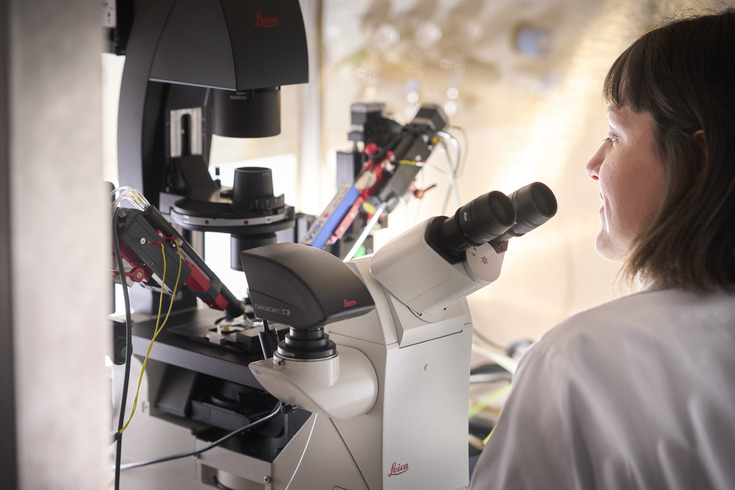Wahl-Schott Group
Welcome to the Wahl-Schott Lab

Photo: Jan Greune
Our lab combines basic research with translational approaches to identify mechanisms underlying physiological function and pathophysiological dysfunction of ion channels that are clinically relevant for human diseases. We focus on endo-lysosomal cation channels such as ligand-gated two-pore-loop channels (TPC) and the mucolipin family of transient receptor potential channels (TRPML). In addition, we work on ion channels localized in the plasma membrane such as hyperpolarization-activated and cyclic nucleotide-gated cation channels (HCN), voltage-gated calcium channels, voltage-gated sodium channels and potassium channels. Our work relates to a broad spectrum of clinically relevant human diseases prevalent in Western countries such as cardiac arrhythmia, non-alcoholic fatty liver hepatitis, hyperlipoproteinemia, atherosclerosis, epilepsy and pain as well as rare diseases such as Ebola hemorrhagic fever. For these projects, we utilize a variety of preclinical models, combining electrophysiological, protein biochemical, and molecular biological approaches with fluorescence imaging and immunochemical analytics. In addition, we conduct studies involving human patients as well as human tissues and cells.
Group Members
Networking/Funding
Selected Publications
Our work is focused on four research topics:
- Physiology of the heartbeat and other cardiac rhythms in health and disease (e.g. arrhythmia)
- Physiology of endo-lysosomal ion channels in health and disease (e.g. metabolic, cardiovascular, and neurological diseases)
- Mechanisms generating specific rhythms in the brain in health and disease (e.g. epilepsy)
- Novel technical approaches
Key words: channel structure and function - regulation of channel activity - contribution of ion channels to cellular activity - role of ion channels in human diseases

